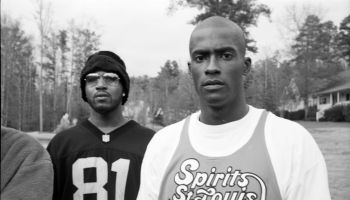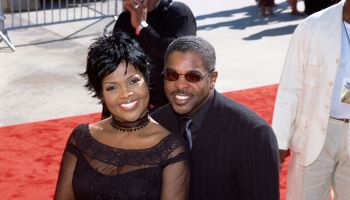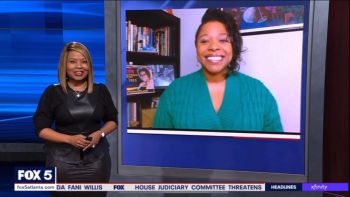VIA: AccessAtlanta
The civil rights movement and its aftermath continue to create bonds, tying together the people who experienced or witnessed racial injustice.
It’s true for Dr. Benjamin Chavis, Timothy B. Tyson and Jeb Stuart.
Last week, film director Stuart’s “Blood Done Sign My Name” opened the Pan African Film and Arts Festival in Los Angeles, and it is set for wider release Friday. It tells the story of the 1970 murder of Henry “Dickie” Marrow in Oxford, N.C., and the unrest that follows, including a boycott of white-owned businesses led by Chavis, Marrow’s cousin. Then a young high school teacher and civil rights organizer, Chavis is co-chair of the Hip Hop Summit Action Network and former head of the NAACP.
“It’s not a movie that is easily told,” Stuart said. “It’s not an apology for white sins. It’s a story of heroes bonded by a particular story.”
The film is based on Tyson’s memoir of the same title and stars Rick Schroder and Nate Parker (from “The Great Debaters). Tyson, now a visiting professor at Duke University, was 10 at the time of Marrow’s murder, the son of a progressive minister who tried to bring about change in his congregation. Stuart said he felt an instant connection when he read the memoir in 2006.
“Tim Tyson is the son of a white Methodist minister in Oxford, and I was living in Gastonia, N.C., the son of a white Presbyterian minister. It wasn’t like a civil rights story of 1963 or ’64; 1970 was a different era. It almost felt like the dawn of a new age and yet we have a town [Oxford] that was completely segregated, “ Stuart recalled.
Oxford is a different place now according to Chavis, who still has a home there.
In 1971, he became known as a member of the Wilmington Ten and spent eight years in prison, convicted of inciting a crowd to burn down a grocery store in Wilmington, N.C. That conviction was overturned in 1980.
Chavis recently discussed “Blood Done Sign My Name” and why he believes race still matters.
Q: What do you say to young folks who think civil rights is ancient history?
A: Some people have this notion that we are post-civil rights or post-racial, [with] which I disagree. There are more economic and poverty related issues, but they are still racial. There are more minorities who are having foreclosures than anyone else. Look at who is incarcerated in Georgia or North Carolina. Look at high school dropout rates. It’s disproportionate.
Q: What would you like the message of the film to be?
A: Anger should be channeled into something constructive not destructive. I was angry that they killed Henry Marrow, but I decided to organize a movement that could affect real change and not just express my anger in some self-destructive way. We all have in our hands the power to change our circumstances but it requires some kind of participation. A movie like “Blood” serves as a reality check for young people.
Read more here.














